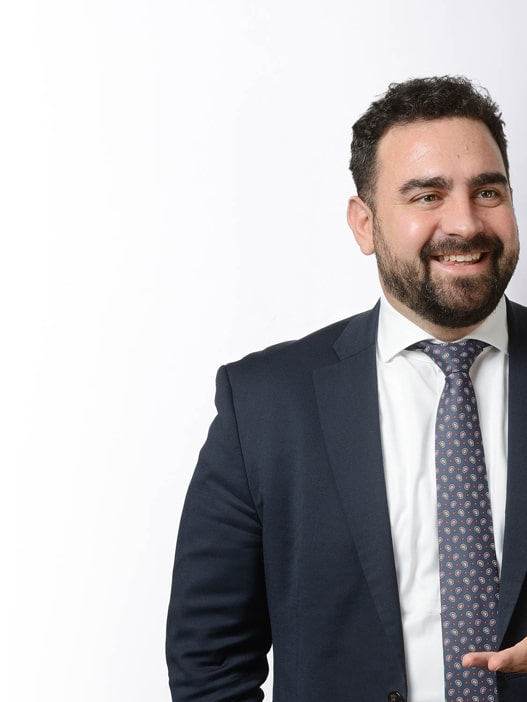Between transfer pricing and VAT law: insights from the C-726/23 Arcomet Ruling
The Court of Justice of the European Union (“CJEU”) addressed the VAT treatment of transfer pricing (“TP”) adjustments in its judgment in the case of SC Arcomet Towercranes SRL (C-726/23). In this Client Alert, Senior Associate János Pásztor and Associates Bence Kálmán and Bálint Apáthy examine the CJEU’s ruling, which, in line with Advocate General de la Tour’s opinion, confirms that charges for intra-group services based on contractual TP agreements involving reciprocal performance obligations are subject to VAT. The Court also clarified that tax authorities may request further documentation, in addition to invoices, to investigate VAT deduction claims.
Case background
SC Arcomet Towercranes SRL (“Arcomet Romania”), a subsidiary of Arcomet Services NV Belgium (“Arcomet Belgium”), operates in the crane leasing and sales sector. In line with a 2010 TP study applying the transactional net margin method (“TNMM”), Arcomet Romania’s operating profit margin was expected to remain within a range of -0.71% to 2.74%. To ensure compliance, a 2012 intercompany agreement stipulated that if Arcomet Romania’s profits exceeded or fell below this range, financial adjustments would be made via annual settlement invoices between the two entities.
Between 2011 and 2013, Arcomet Romania’s profits consistently exceeded the upper threshold, prompting Arcomet Belgium to issue settlement invoices without VAT, treating them as service supplies. While Arcomet Romania initially applied the reverse-charge mechanism for VAT on the first two invoices, it later deemed the third invoice outside the scope of VAT. Romanian tax authorities challenged this position, arguing that VAT was chargeable and not recoverable due to insufficient evidence of service provision. The dispute escalated to the Bucharest Court of Appeal, which referred the matter to the CJEU for clarification on whether such invoices constitute consideration for VAT-taxable services and whether additional documentation is required to support VAT deduction rights.
The ruling of the CJEU
The CJEU clarified that for a service to be subject to VAT, it must be performed “for consideration,” meaning the payment must be directly linked to identifiable services rendered. In this case, Arcomet Belgium provided commercial services and assumed key economic risks related to Arcomet Romania’s operations, resulting in tangible benefits such as cost savings and improved service delivery. The payments made by Arcomet Romania – triggered when its operating profits exceeded the agreed threshold – were deemed by the Court to reflect reciprocal performance, thus constituting consideration for VAT-taxable services.
The Court rejected the argument that these payments were merely TP adjustments without a corresponding service. It emphasised that adherence to OECD TP principles does not automatically determine VAT treatment. Instead, each case must be assessed individually to determine whether a TP-based charge reflects a genuine supply of services. The CJEU also distinguished between passive shareholding and active involvement, noting that Arcomet Belgium’s active provision of commercial services to its subsidiary qualified as an economic activity for VAT purposes.
Finally, regarding VAT deduction, the CJEU held that tax authorities cannot deny recovery solely on the basis of invoice errors, provided the substantive conditions for deduction are met. However, where invoice requirements are not fully satisfied, authorities may request additional, proportionate documentation to verify that the services were indeed supplied and used for taxable transactions. As a result, Arcomet Romania may be required to provide further evidence to support its VAT recovery claim.
What does this mean for your business?
The CJEU confirmed that where a legal relationship involves reciprocal obligations and identifiable services rendered in exchange for payment, such payments constitute consideration for VAT-taxable services – even if the amounts are determined through TP arrangements and depend on the subsidiary’s profitability. The possibility of a reverse payment in the event of losses does not undermine the direct link between the services provided and the remuneration. The Court emphasised that the determinability and contractual basis of the payment are sufficient to establish a taxable supply.
However, the judgment does not establish a blanket rule that all TP adjustments are subject to VAT. The CJEU stressed that VAT implications must be assessed individually, particularly where actual services are rendered under a contractual framework. For businesses, this highlights the need to align intercompany agreements with both direct tax and VAT considerations and to maintain comprehensive documentation to support VAT recovery – beyond just formal invoices.
We would be pleased to assist in reviewing and aligning your intercompany agreements to ensure compliance with the recent CJEU ruling. Our team can support your business in assessing the VAT implications of TP arrangements, strengthening documentation and ensuring that contractual frameworks reflect both direct tax and VAT requirements.
Download the Client Alert in English


